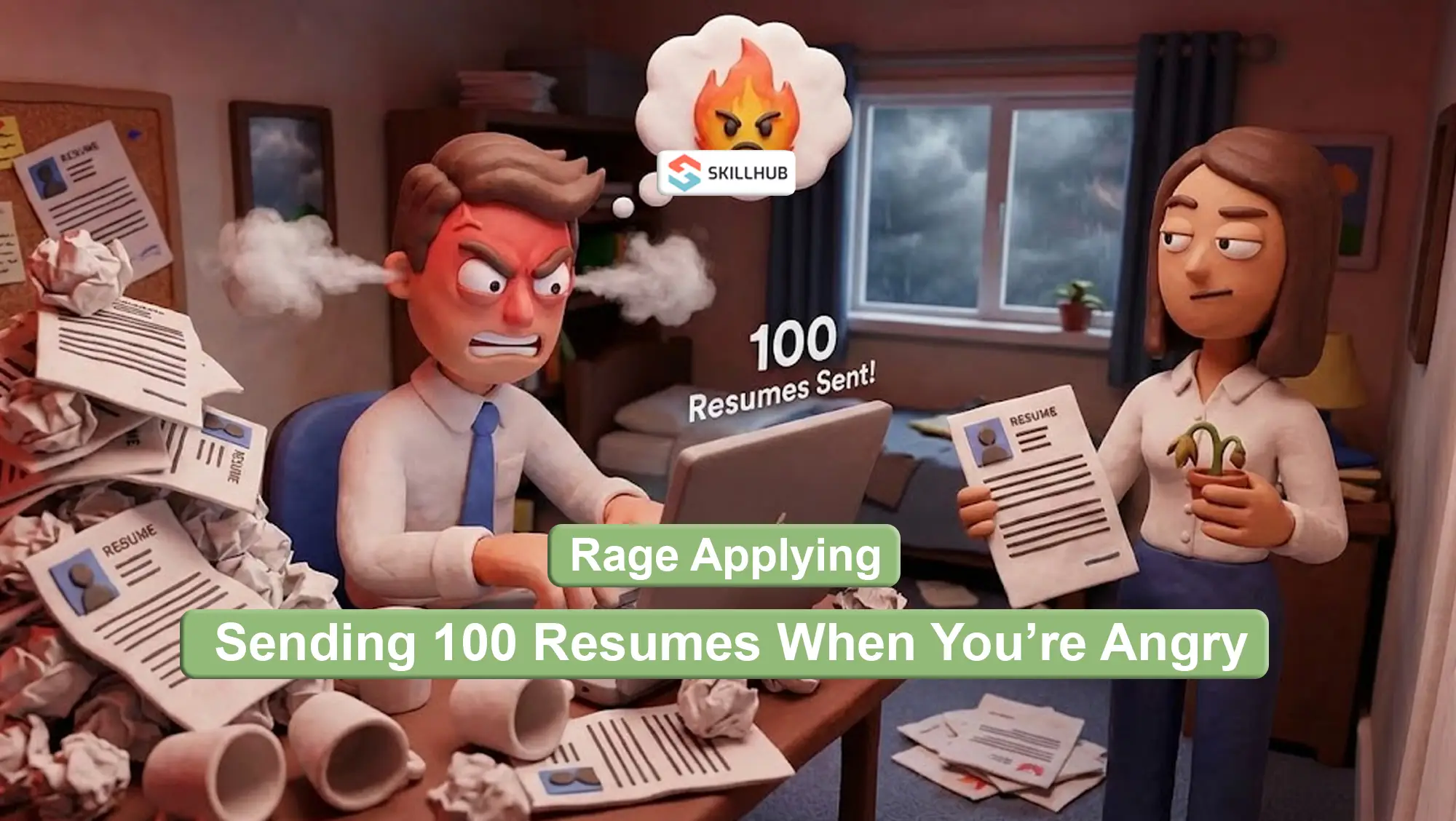Plan for Success: a Conversation with Vidya Salvankar
.png)
Her IBM career is an example many avid IT specialists get inspired by. Throughout her professional path, she managed to accumulate plenty of useful and relevant experience. This knowledge is an absolute treasure for anyone who is thinking of following in her footsteps.
This interview will answer some of the most common questions entry-level professionals have. Perhaps it will even give you an idea of what your long-term plan should look like. Getting information from within is a way more reliable way of getting useful information than simply doing research on the web.
About Vidya Salvankar
Before she made her way to big-shot project manager, Vidya Salvankar was working as a software developer for the Banking Financial Services and Insurance sector. This is a great starting point in and of itself. But she didn’t let it lull her career ambitions.
She continued searching for more opportunities to learn and grow. She briefly switched to the travel industry and continued to expand her skillset working as a software manager. Once she finally returned to the banking sector - she was more than ready to take on the challenges of a project manager position.
She improved her communication skills as a part of multinational corporations which gave her a definitive edge when working with multinational teams. And, after a long career path, she ended up at IBM. And she’s not planning on stopping here.
She is looking forward to growing to someday fill the shoes of a project management office lead. This will help her apply her talents for organization fully, helping the company streamline and improve its practices.
“I don’t believe in taking the right decisions. I take decisions and then make them right” - this quote from Ratan Tata is a creed she lives by. And it seems it has served her well so far.
What has your career path been to IBM?
My career path has been pretty long-winded. It doesn’t really matter how good you are. You have to be patient and persistent. These qualities are what made about 70% of my project manager success. And I can’t stress this enough.
It’s very easy to become content with what you have. Going into the unknown is always scary. And sure, there is a certain risk involved when you are jumping between jobs. But you have to understand what it is you want. If you want to get to the top - there’s no place for passiveness. Draw up a plan and work to fulfill it every day.
“It’s very easy to become content with what you have”
There will be setbacks. But it’s just a part of life. You have to accept it and use it as a learning experience. After all, even a bad day at work counts for something in your CV. There’s no need to get discouraged.
Why this industry?
Ah, well, coding has a lot to do with solving logical problems. That and the ability to maintain a growth mindset at work is what defines a good software developer. And you can fare perfectly fine with just that.
However, if you are looking to branch off, you are going to need additional qualities. In my case, the ability to think outside the box and decent communication skills made the transition to management much easier and smoother than it would’ve been otherwise.
In short, you should look for a niche you already have an aptitude for. Even if you don’t have enough experience, you’ll be able to pick things up in no time. It may take a couple of tries before you realize what niche you were born to fill. Don’t be scared to waste time. Searching and probing the professional field is way more important than saving a couple of months.
What does an average day look like?
An average work day in IT is pretty hectic. Well, I guess it depends on the specialization. But for me it definitely was. And IT management is that times ten. Everything is happening really fast. Digitalization of the workspace helps you deal with all of this just a bit easier. But you’ll still find yourself in need to be in several different places at a time.
What can I say, unless you love this kind of work, it will be really hard to keep up the pace. Some managers burn out in a matter of weeks. The job is challenging but in a good way. You get to do a lot of diverse tasks. It won’t let you get bored for a second. Living at 100 miles per hour is more or less a prerequisite for those who are looking to build an IBM career.
Inspired? Want to get a job or make a move into career! With the help of professional resume editing service, you'll have it with no hassle!
What percentage of your time is spent doing each function?
I dedicate about 20-30% to team communication. It’s usually a short round in the morning but queries come in throughout the day. The same goes for communicating with my own manager. 20-30% of my time goes to them.
Another 10-20% of the day at work goes to talking to stakeholders. They don’t need as much attention as my team. But you should always spend some time with them anyway. It’s sort of like a daily tribute. And, of course, about 10-20% of my time is spent on figuring out how to improve my workflow. It’s a very useful habit. The amount of time I saved by dedicating it to the enhancement of my procedures is insane.
What are your career aspirations?
Some would say that middle to upper-level management is a pretty sweet spot to find yourself in. But I’m not looking to stay here for the long run. My current plan is to someday become a CEO of a startup or a medium-sized company. There are plenty of examples of people making this transition. And I think it suits me really well.
I’ve spent a lot of time learning about the ins and outs of development and management and feel like this is the logical next step on my professional path. I would definitely not recommend rushing the moment of going independent though.
If you need more examples for inspiration, go on resume examples by industry. There are well researched, perfectly written to a job position resume examples that have already promoted!
What is your current role like? What about it makes you want to get up in the morning?
My current role is all about resource management. In the broadest sense of that word. My position implies that I have to deal with company resources both financial and human, as well as my own mental and time resources. If you are building your IBM career, these skills come naturally. You pick them up whether you want it or not. The question is, what are you going to do after you’ve got those skills?
For me, getting up in the morning is looking forward to solving more puzzles. It’s sort of like a game, you never know what might happen today. Yet I am always ready to tackle the problem head-on.
Are there any expectations you had about this career path that you have found differed from reality, in both good or bad ways?
Of course, I have had a bit of an idealized picture of my career path in my head. There were plenty of ups and plenty of downs. On a bad day, it’s a bit more routine than I expected it to be. But working through it is definitely worth it. If you can’t take the worst a job has to offer - you are probably not going to like it at all. I found that it’s more about the disadvantages you can tolerate than it is about the advantages you look forward to. That’s what determines whether a job is going to be a good fit for you.
“If you can’t take the worst a job has to offer - you are probably not going to like it at all.”
What don’t you like about your job/a career working for IBM?
It’s a great job. I can’t really say I don’t like anything about it. This career path is riddled with challenges. But it’s a good thing for someone like me. I appreciate this sort of working dynamic. It’s way more exciting to build a career when you have to really work for it. It creates a sense of appreciation and satisfaction for your accomplishments. And if you are happy with what you do - you can work for much longer than usual.
What are the biggest challenges?
The biggest career challenges are time management and teamwork. They are closely related actually. When you are a project manager - a team’s time is your time. If you want to be more efficient, you have to make the team more efficient.
Pushing changes through to conservative team members can be pretty difficult at times. But when you see the results of your work - it becomes absolutely worth the effort. I consider myself pretty successful on that front.
What are the compromises?
There are no compromises in a work like that. You get the work done. That’s what matters. No compromising allowed over that. You can debate with yourself over choosing different approaches to a given problem. But you should always keep on the offensive. There’s absolutely no giving ground as far as results are concerned.
That’s the mindset I went into IBM with. And that’s what kept me going. There must be different schools of thought out there. But this one works for me and I haven’t seen someone that’s big on compromises make it out there.
Is your job what you thought it would be when you started?
At its core, this job is absolutely everything I thought it would be. My career path was pretty wild. But I’m happy with what I’ve managed to achieve. The position of project manager gives me all the professional challenges I can ask for and then some more. It’s a pretty busy job. But I wouldn’t trade it for anything. I chose my path and I’m planning on sticking with it. No regrets.
How does your time use vary? Are there busy and slow times, or is it relatively constant?
Oh yeah, there are definitely slow days here and there. They are pretty rare but they exist. There are also different kinds of busy days. Sometimes you are just working hard and sometimes you forget how to breathe. In general, there are always projects to work on. If you want to do something - you’ll find a task for yourself.
What projects have you worked on that have been particularly interesting?
I have to say that the most interesting projects I have ever worked on were during my time in banking. Insurance might sound boring but it’s a pretty cool foundation for development work. It’s when I was working on those projects I got most of my experience.
But I like every field I work in. You can always learn something new. Never pass on an unfamiliar project. You have to try it to understand what you like and dislike about it. There’s no such thing as a bad experience.
What skills are the most crucial to succeeding in this career?
There are many skills that are crucial to succeeding in a project management career. Communication, discipline, logic, and risk management are the main ones. But the list can go on and on. There’s no such thing as a useless skill for a manager. Knowledge is power. And in this case, it couldn’t be more true.
Of course, you should address the core skills first. Without foundation, you won’t be able to build yourself up. But once you’ve got the basics covered - you can move on to something more specific and obscure. Never stop learning.
What is the best advice for someone looking to move into this area?
Obtain crucial skills first. Dive right into the fray second. Always look for ways to improve yourself third. And that’s pretty much it. The industry never stops moving. If you have a knack for it and are ready to move with it - there’s no reason you can’t start working right now. It doesn’t really matter what your first job is. As long as you keep your long-term plan in mind - it’s a step-by-step process. And you’ll be able to get where you want to be someday.
“The industry never stops moving.”
Does your management have a strong opinion on how you perform your job, or is it more on you as a professional?
Yes, of course, the management has their opinion of how we should perform. And we always strive to meet their expectations. Sometimes they are too high. And we still strive to meet their expectations. The effort really counts. Your career path depends on how much you are willing to do to achieve your goals.
If you can't communicate with management well, you can relieve it into a message! For example, letter! Don't know how, take a help from professional cover letter service. It's easy and professional.
%20(1).png)



%20(1).webp)